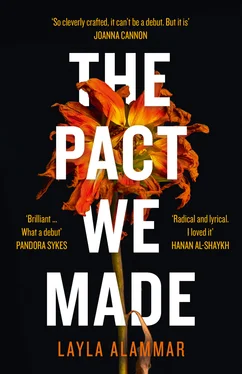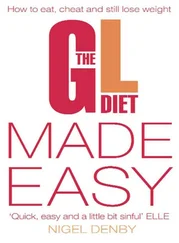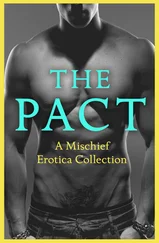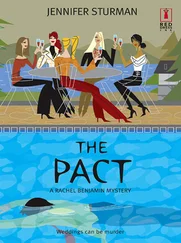Bu Faisal was married to an old friend of my mother. Despite how close they used to be, I only saw his wife every once in a while, at a wedding or reception of some sort. She looked how most Kuwaiti women of her generation would like to look: hair long and thick, with highlights that looked natural; a face kept young with regular injections of Botox and collagen; a body that didn’t bear witness to the four children she’d had. She would get up and dance with the younger girls at weddings, tying a scarf around her hips when the belly-dancing numbers came on. She wore the outrageous jewels and big-name brands that she told you were from Paris or Milan, even though they all had branches at the local mall.
When I was younger, when our families used to spend time together, Mama would bring up their marriage a lot. ‘Look at how Bu Faisal treats her,’ she would say, pointing at him serving his wife tea, so unlike my father and uncles, who expected their wives to do that sort of thing. Or when his wife would show off a ring or necklace he’d bought her, and Mama would turn to me and my sister and say, ‘That’s the sort of man we want for you,’ as though lavishing someone with gifts made for a perfect marriage. She painted him as the ideal man, and my sister gobbled it up, but I wasn’t so easily convinced. At an early age I’d learned about men and the masks they wore.
Evening fell and with it the temperature. There was a definite chill in the air: on the tip of your nose; in the soles of your feet; across your shoulders. I sat in the garden, giving in to my desire to sketch Ariel from the film I’d seen with Yousef. I was attempting to duplicate those delicate features and lithe form, but my sprite was looking nothing like the actor.
It was something I often did, try and replicate things I’d seen in films or famous paintings in galleries I visited on vacation. Usually I would alter the paintings in some way, twist them into something relevant to my own time and place; I’d add Bedouin tents to a background or turn an English nose into one more reminiscent of a Saluki. Less often an image would come to me, fresh and original, and I would rush to transfer it to a sketchbook, but I was, for the most part, powerless to execute these things my mind conjured. I found more success with paintings and illustrations that were already created. When I was younger, I’d dreamed of going to art school, of becoming an artist, but Baba maintained that art was a hobby and not a career and besides, copying work rather than creating it probably wasn’t what art schools looked for. I’d done business at university because I was ‘meant to’, and I subsequently took a job in the finance industry because I was ‘meant to’. It was expected of me, like it’s expected of most of us.
I abandoned Ariel and started doodling my namesake in a halo around his head, petals curling around his pointy ears. I’d been drawing dahlias since I found out my name was a flower. My father had come back from a business trip once and brought me a coloring book of different flowers. When I’d colored them all, I tried drawing them from scratch. He bought tracing paper and taught me how to secure it with paper clips, then, his hand over mine, he showed me how much pressure to put on the pencil as I followed the lines and curves. Over and over, until I could do it with my eyes closed.
My dahlias were everywhere: on old schoolbooks; on the knees of the faded jeans I ran around in; along the borders of other illustrations I attempted; on steamed-up car windows, notepads at work and paper place mats at restaurants.
Raju, the houseboy, startled me, wheeling out the duwa – the tea trolley with built-in charcoal pit. It was brass and silver with shiny black wheels. A tea set was loaded on the bottom shelf: little glass cups; sturdy metal teapot from the old souq ; mini-cans of condensed, tooth-rotting milk. He set it before me like I’d asked for it and went about lighting the charcoal cubes. Baba stepped out the front door with a ‘Ha!’ when he saw me curled up in the wicker chair. He swung his arms to the front and side, an akimbo Macarena, a bastardized version of the routine we’d all done during morning assemblies at school.
He stepped off the porch and into the yard, surveying the grass for bald spots and inspecting the date trees. It’s a barren land, but you wouldn’t know it looking at our garden. The proper names of trees and vegetation aren’t common knowledge in Kuwait, at least not among the younger generations. If pressed I could possibly have identified an orange tree, but only if it were blossoming. Baba wandered over to his herb corner as Raju finally got a proper fire going and left the duwa in my care. My father squatted down on his chicken legs to check the nets protecting his rosemary and mint. He was happy, enormously happy, his only concern whether the street cats were messing with the herbs again. There was a particularly fierce tom, a wall-prowling howler with a personal vendetta against mint, who tore through the nets Baba set up and gnawed at the baby stems and leaflings. This infuriated him. I’d suggested, more than once, that he move his herbs inside, but he said they would taste different if they were grown through glass.
The front gate opened, and Nadia and her brood spilled into the yard. First came the twin boys, tearing across the grass to the trampoline Baba had set up for them in the corner. ‘Shoes off!’ I called as they hoisted themselves over the bar, a directive that was ignored until their grandfather sent over a quelling look.
Then came the little one, Sarah, tiny hand clutched by Nadia as she had a distressing tendency to sprint towards the street. She tugged and tugged, but only when the gate was firmly shut behind them was she released and allowed to fly through the yard and jump in my lap. Nadia couldn’t get so much as a greeting in until Sarah was done telling me about her day: there was the spring show rehearsal and the girl next to her who didn’t know any of the words; there was the PE class where she wasn’t chosen in Duck, Duck, Goose; there was the teacher who was having a baby, and why couldn’t Mommy have one too?
I laughed over at Nadia, who had a horrified expression on her face. ‘Maybe in a few years, baby,’ I consoled Sarah, running my hand over her curly hair, so much like mine when I was her age.
‘But I want one now,’ she whined into my neck.
‘I’d sooner shoot myself,’ Nadia mumbled, jerking her chin towards the boys, who were half jumping, half wrestling on the trampoline.
I cuddled the little one tighter in my lap. ‘It’d be okay if you had another girl.’
‘Can I get a guarantee?’
Mama came out to join us, and Nadia rose to greet her. Sarah wanted to stay put, but I nudged her to her feet and over to her grandma.
‘ Hayati! ’ Mama lifted a wriggling Sarah up into her arms for a hug and a smattering of kisses. When she put her down, she scurried back and climbed into my lap. ‘Go play with your brothers.’
‘ La Yumma ,’ Nadia said with a shake of her head. ‘They’re too rough with her on there.’
Sarah didn’t seem inclined to move anyway, snuggling up to me while we talked over her head. Eventually Baba abandoned his garden to come get her; he pushed her on the swing set, trying to teach her to propel herself. I’d forgotten about the duwa , but Nadia always had impeccable manners, and she got up to serve Mama. The tea might have been too strong at that point, but she tipped the pot over a cup so it came out in a steaming, perfect arc. She filled the cup almost to the brim, knowing how our mother liked it, then cracked open a can of condensed milk and filled the remaining space with the white, syrupy liquid before handing it over.
Читать дальше












